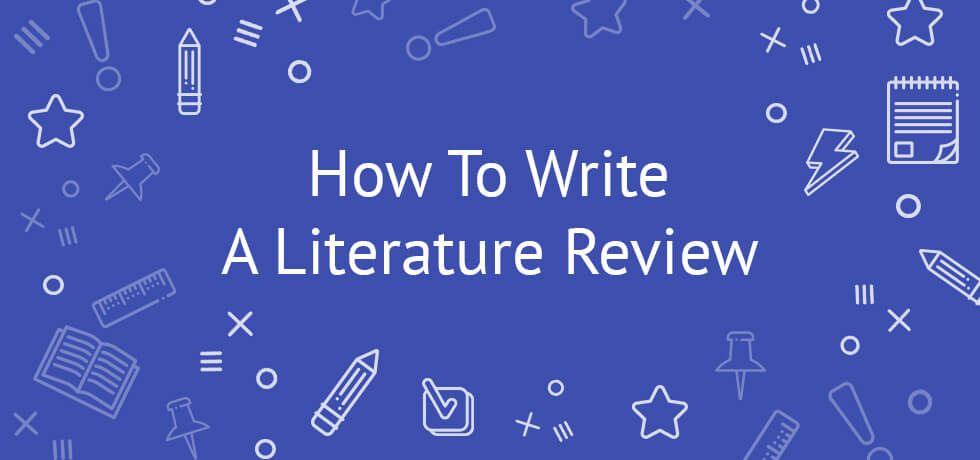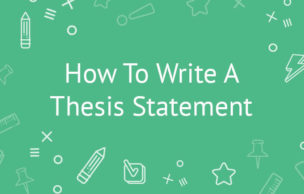How to Write a Literature Review

A well-written literature review should provide your readers a deep insight on the writings that helped you build your research. However, it shouldn’t just be a sequence of names and data. A literature review is not just a summary. It should have a solid structure with clear explanation and, above all, it should have substance. What exactly does this mean? Well, your readers should find this chapter informative and targeted, there is no doubt about it. But they still have to be able to get an idea about the “why.” Why did you choose those writings? Why were they so important to the contouring of your direction? Why did they inspire you? Try to answer these three questions outlining the value of your chosen writings. You should have a good list of high-quality studies or different articles supporting your subject. To help you come up with the best result, here are some ideas on how to write a literature review.
The importance of a literature review
A literature review has an important role in the structure of a thesis. It should point out the articles and studies that have inspired the writer, but it has different other meanings too:
- It provides readers a comprehensive report on how significant the topic is by proving the importance of the articles cited;
- It gives readers the chance to compare and evaluate different valuable writings that have inspired the writer. Thus, the literature review does more than offering a theoretical approach, but it creates a window of inspiration for other researchers;
- The audience can make an idea on what is the focus of the paper, for the literature review offers a hint in this direction. Readers can, therefore, predict which is the area of focus.
- It shows a different perspective on previous research, identifying any contradictions or gaps, finding new ways to define a particular matter.
- A literature review gives a chance for new interpretations, it proves that your own thesis is a starting point for future debates and ideas. Mixing old and new materials to form a different perspective is not uncommon since a literature review is more than often a combination of ideas put together in an original synthesis.
- It highlights the credibility of your research in a particular field.
Make sure you understand the requirements
A literature review can be a thesis on its own. Many professors ask students to write literature reviews on a specific subject, which is why it is important to have a clear overview on this aspect. So first and foremost, ask your instructor if you should conduct your own research or just evaluate other literature in order to build up a synthesis of your findings. Also, don't forget to ask if you should include a critique of your sources if it is necessary to offer an evaluation. Some teachers will be clear upon the type of sources that they prefer (books, journals, websites, etc.), so if you don't have this information, make sure you ask this too. Before getting the pen and paper, you have to know exactly how the content of your writing should look like.
Search the database and be focused
Once you have established the subject of your thesis, you can move on to gathering the pile of writings that you'll use. Sources that are relevant to your research can be found in a variety of libraries and online catalogs. You can use specific keywords to search the Internet, every option works fine as long as you focus on your subject. With such a great amount of interesting articles to read, it can get a little bit overwhelming to make a selection.
Here is an example: studies about how sports is boosting the weight loss. Searching for this type of writings can take more time than predicted since the topic has so many interesting aspects. With a subject so rich in possibilities, it can be harder to concentrate on a particular aspect. Let's say you want to prove the link between those two, but there are so many interesting pieces of information about dieting too. Don't waste precious time on researching a tangential aspect of your main target, and don't give it more credit than it deserves. Sure, losing weight is also about good food quality, but this is not your focus.
Take all the time you need to read and understand your sources
Are you familiar with the "burning steps" method? One which we don't recommend you use when writing a literature review, for sure. It is important to really understand what you are reading. You won't be able to decide which sources are ideal for your work if you browse their pages superficially. So make sure you start reading every book and article you need with a considerable advance. Once the deadline gets closer, it is not a secret that the pressure is higher. And the chances to overlook important information are higher too. You can estimate how much time you might need to complete your readings judging from the subject’s complexity. The more difficult the topic, the longer the time, obviously.
Evaluate your literature
Carefully reading the writings you’ve chosen only brings you one step closer to drafting a weighty literature review. Make the next step by detachedly evaluating them. Here are some concerns to think about:
- Is the author of the article an expert in your chosen field? If not, how is his work relevant to your thesis, considering that he does not have a qualification?
- Does the article go into one direction only or does it leave room for interpretation?
- Is the author offering convincing evidence to support his theory? Is he using other studies or is he offering his own approach?
- In addition to these aspects, keep in mind that you need to keep unaltered the original content. You can make a proper evaluation by mastering the topic you are researching. This way you can extract the oversights if any.
Take notes
The number of sources that need to be assessed can prove to be overwhelming, so at the end, you will find yourself puzzled by how much information needs to be put together. To avoid this, we strongly recommend you take notes as you read. At first sight, it seems that it only hinders the process of profoundly reading the articles and studies. But we promise that it actually simplifies the entire procedure. Here are some readers why we encourage you to note down any piece of information you find revealing:
- Imagine that with so many facts to piece together, it is nearly impossible to remember each and one of them. So taking notes as you go through your readings is a great idea. Tip: you can use small bookmarks to keep track of the most important pages. It works with online sources too.
Another positive “side effect” of taking notes while reading is getting to deepen your knowledge. This is because you are encouraged to go through the same sequences twice, and while it looks like a waste of time, it is actually an excellent way to build the foundation of your literature review. It works even better when finding studies contrary to your perspective, for it gives you the time to analyze the facts and build a counter-argument, if necessary. So make sure you always have a notepad close when studying your sources.
You can use any interesting quotes that you might find useful to your thesis. A citation will offer credibility to your work, especially when it comes from an author with expertise in your field of study. However, if you choose a quote, make sure to paraphrase the original words, citing the author. You will need the page number in order to write the reference by the book, so noting down as you read seems like a better choice.
Be organized
In order to write a meaningful literature review, you have to come up with a clear classification of the articles you have chosen to dress up your thesis. You can create the same assortment for those offering contrasted arguments, in opposition to yours. This way you make sure you underline your position, bringing a new light upon the sources that have treated the subject before.
To make it easier, you can divide your review into two distinct parts, one offering sources similar to your statement, the other showing the opposite. It will be easier for your readers to understand where you’re standing and what is your approach. Not to mention that this way they can browse any category they like if they lack time to read the entire review. You can give it a try.
Moreover, try to look for any common or opposed conclusions and search for the most influential assumptions. Is there any pattern, are there any trends that seem to lead your research into a different direction? Note them down, even though they don’t seem to support your initial assumption. However, remember that popular theories can be overturned at any time, as long as you bring evidence to support your sayings. We thought the Earth is flat once until somebody has proven us wrong, remember?
Analyze instead of reporting
Your literature review should not just cover a collection of studies. It is more than a description, it is an analysis, which means that you have to dig deeper. Evaluate, measure and compare your sources. Write a pertinent observation, with relevant pointing outs and strong evidence to prove how your theory works compared to the ones you have been analyzing. There has to be a central concept which entitles your entire work, try to give it meaning. Simply describing the literature is meaningless for a powerful review.
Provide some clues about the findings
Before closing up, make sure you have included one or two paragraphs summarizing your findings. The literature review often times covers only the theoretical part of your work, it is the research methods that will help you build up your own notions. However, it isn’t always the case. There are certain circumstances when a literature review works as a study on its own, in which case writing the conclusion is an understatement.
Though, going back to the much more complex research papers such as dissertations, students frequently disregard these few sentences summarizing the conclusion. Yet, it is more than welcome, mainly because it gives the readers the chance to make an idea about your findings, while still keeping a dose of “secrecy.”
Writing one or two paragraphs about your working thesis will also create a smooth transition to the next chapter of your study. Thus, your readers will have a sense of familiarity examining the body of the article, which opens their reading appetite.
Proofread your paper
Needless to say how important it is to revise your work. Not only to check any grammatical or spelling errors but only to make sure that you have covered all the important aspects of your chosen studies. Also, make sure you have the right quotations and that you haven’t neglected plagiarism.
All in all, writing a literature review requires strong knowledge about a particular field of study, so one can recognize valuable and an up-to-date studies. So make sure you master the topic before searching for others’ work. It is key to a successful start.





